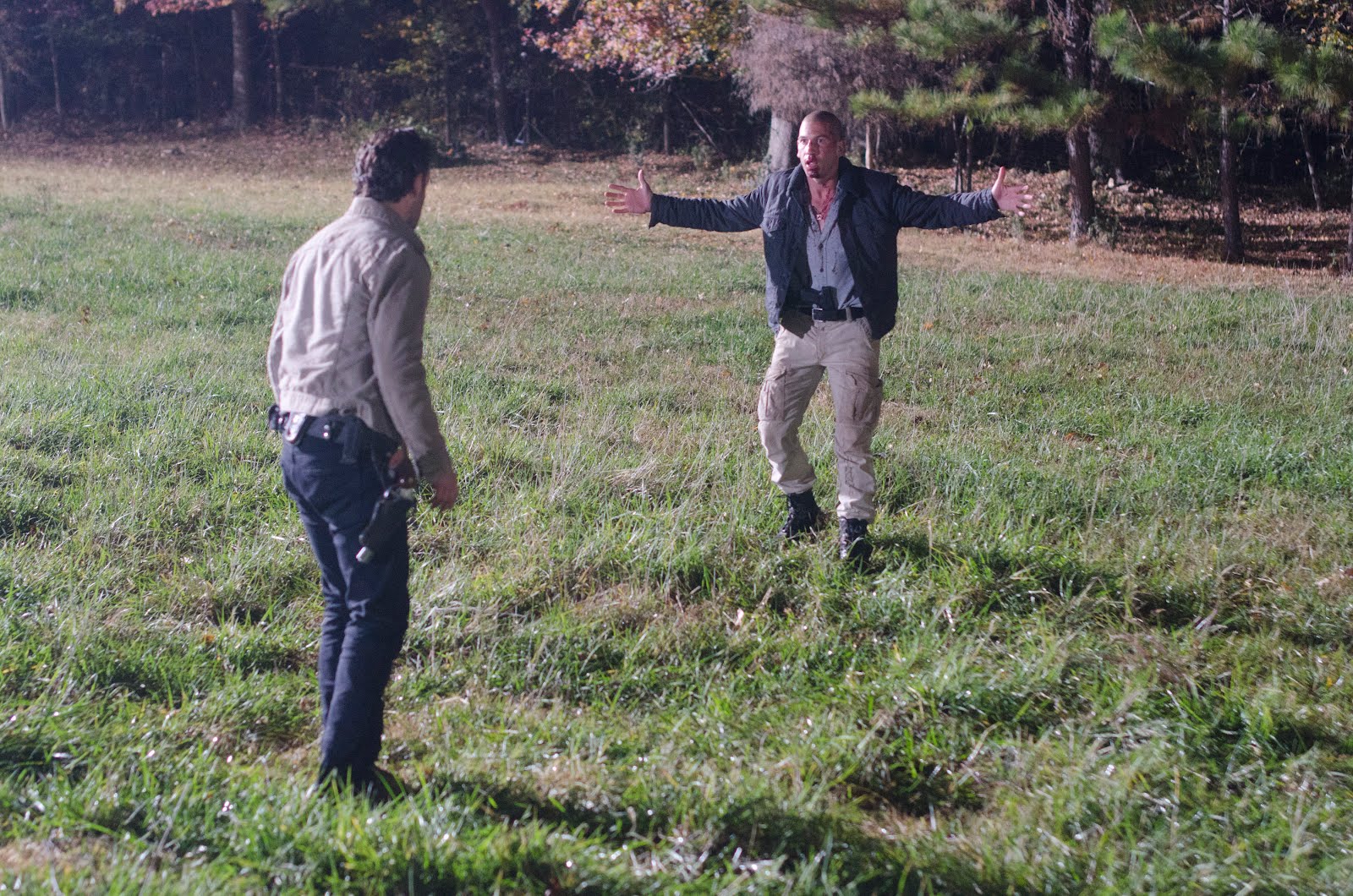In a world where uncertainty reigns, we often find ourselves questioning the outcomes of our expectations. "What happened, Rick? I thought..." is a phrase that resonates with many of us, encapsulating our feelings of confusion and surprise. Whether it pertains to a personal relationship or a broader societal issue, this phrase underscores the gap between what we anticipate and the reality we face. In this exploration, we delve into the various interpretations and implications of this sentiment, shedding light on the emotions that accompany our unmet expectations.
As we journey through the layers of this phrase, we will discuss its relevance in different contexts, from personal experiences to cultural references that have shaped our understanding of disappointment. The phrase serves as a mirror reflecting our hopes and the stark contrast of reality, prompting us to seek clarity and understanding. What if we could unravel the complexities behind these words and discover the stories that lie within?
The essence of "What happened, Rick? I thought..." goes beyond mere confusion; it taps into the human experience of grappling with disappointment and the quest for answers. Join us as we explore the various dimensions of this phrase and uncover the narratives that shape our lives.
What is the Origin of the Phrase "What Happened, Rick? I Thought?"
The phrase "What happened, Rick? I thought..." has become a cultural touchstone, often used in various forms of media, including television shows, memes, and casual conversations. But where did it originate, and how has it evolved over time? This section delves into the backstory of the phrase and its significance in popular culture.
How Did It Gain Popularity in Social Media?
Social media has played a pivotal role in popularizing the phrase. Platforms like Twitter, Instagram, and TikTok have provided fertile ground for users to express their feelings of confusion and disappointment in humorous or relatable ways. Memes featuring the phrase have gone viral, allowing individuals to connect over shared experiences of unmet expectations.
Are There Specific Events That Trigger This Reaction?
Yes, specific events or scenarios often trigger this reaction. Whether it's a shocking plot twist in a beloved TV series or a personal experience that didn't go as planned, these moments create a sense of bewilderment that resonates with many. The phrase encapsulates the collective feeling of surprise and disappointment, making it a powerful expression of human emotion.
Who is Rick and Why is He Central to This Discussion?
Rick is often seen as a metaphor for the person or entity that fails to meet expectations. In various contexts, he can represent a friend, a partner, or even a societal figure. Understanding who Rick is can help us better grasp the emotions tied to the phrase and the reasons behind our feelings of confusion.
Is There a Real-Life Rick We Can Relate To?
In our lives, we all have our own "Ricks." These are the friends or family members who sometimes let us down, the partners who fail to uphold their promises, or even public figures whose actions contradict our expectations. By reflecting on our experiences with these "Ricks," we can gain insight into the nature of disappointment and how to navigate it.
What Role Does Communication Play in Managing Expectations?
Communication is key when it comes to managing expectations. Often, misunderstandings arise due to a lack of clarity or openness in our conversations. By fostering better communication, we can help prevent the feelings of confusion that lead to the phrase "What happened, Rick? I thought..." from becoming a common refrain in our lives.
How Can We Cope with Disappointment?
Disappointment is an inevitable part of life, but how we cope with it can make all the difference. Here are some strategies to help manage feelings of confusion and disappointment:
- Practice Self-Reflection: Take time to understand your feelings and the reasons behind them.
- Communicate Clearly: Express your expectations clearly to avoid misunderstandings.
- Seek Support: Talk to friends or family about your feelings to gain perspective.
- Adjust Expectations: Sometimes, re-evaluating what you expect can lead to greater satisfaction.
Can We Learn from Our Experiences of Disappointment?
Absolutely! Each experience of disappointment offers a valuable lesson. By reflecting on what went wrong and how we can prevent similar situations in the future, we can grow and develop resilience. This growth allows us to approach future expectations with a more balanced perspective.
What is the Broader Message Behind "What Happened, Rick? I Thought?"
The phrase encapsulates a universal experience of hope, expectation, and the stark reality of disappointment. It serves as a reminder that while we may not always get what we want, we can still find meaning and understanding in our experiences. By embracing the lessons learned from our "Rick" moments, we can move forward with greater clarity and strength.
Conclusion: Embracing the Uncertainty
In essence, "What happened, Rick? I thought..." captures a fundamental aspect of the human experience. It's a phrase laden with emotion, reflecting our struggles with disappointment, confusion, and the quest for understanding. By exploring the origins, implications, and coping strategies associated with this sentiment, we can navigate our own "Rick" moments with greater resilience. As we continue to face the uncertainties of life, let us remember that every disappointment can lead to growth, understanding, and ultimately, a deeper connection with ourselves and others.
```
Unveiling The Life Of Sarah Chapman: The Woman Behind Tupac Shakur's Legacy
Pharrell Williams: The Mastermind Behind Iconic Produced Songs
Unveiling Madelyn Cline's Role In The Originals


